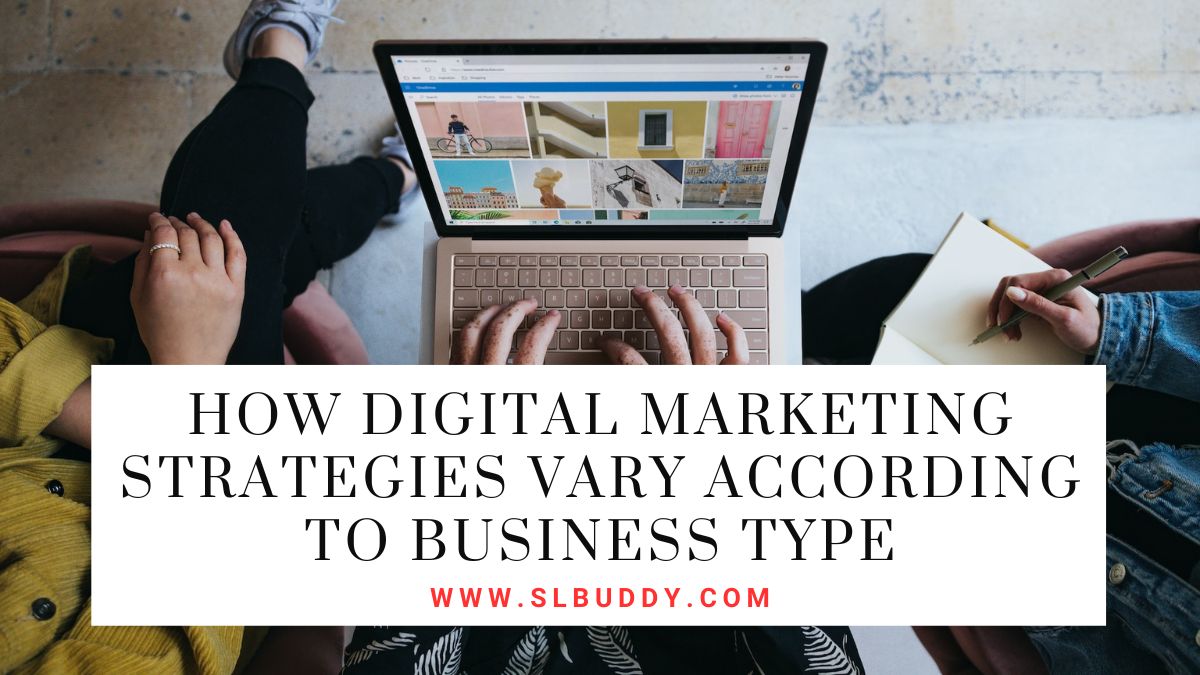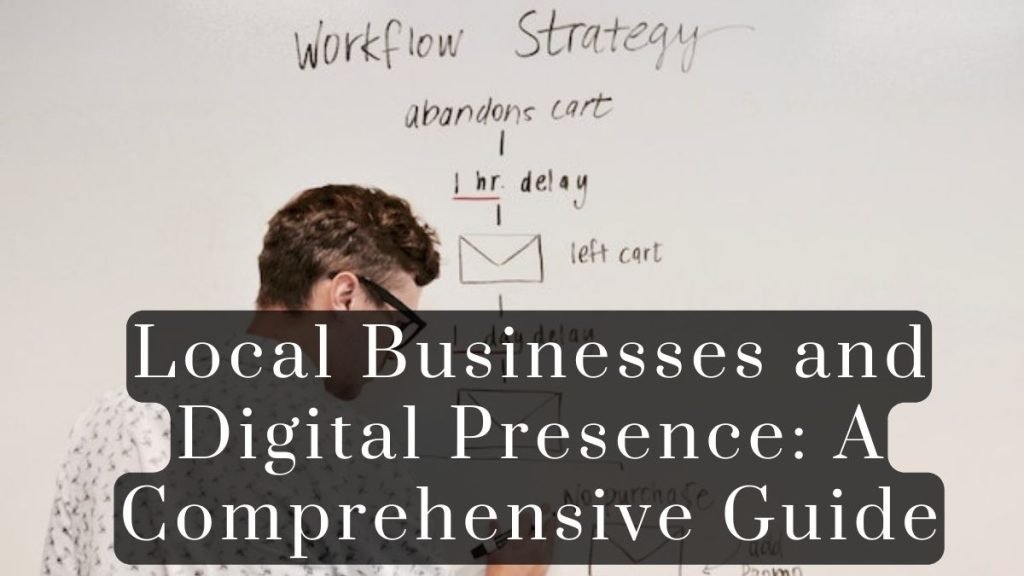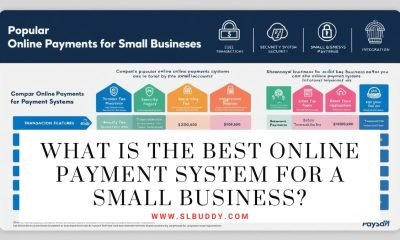
Running a business is no small feat and requires great attention to detail when it comes to marketing.
Digital marketing, in particular, has become an invaluable tool for businesses as the world shifts more and more online.
By investing the time necessary to understand how digital marketing strategies vary according to business type, entrepreneurs and organizations can craft campaigns that will maximize their reach and cultivate successful customer relationships.
In this blog post, we’ll explore some of the most effective digital marketing approaches used by different types of businesses so you can be sure your efforts are well-placed. Ready for a deep dive? Let’s get started!
The Influence of Business Type on Marketing Strategies
The type of business significantly influences the choice of digital marketing strategies.
For instance, B2B (Business-to-Business) companies often benefit from LinkedIn advertising and informative blog posts demonstrating industry expertise.
They may also find value in webinars or whitepapers that appeal to a professional audience seeking knowledge. On the other hand, the team behind https://www.relentless-digital.com says that for an HVAC contractor business, it’s important to focus on local SEO and targeted Facebook ads to reach customers in their service area.
This highlights how the target audience and goals of a business can greatly influence the digital marketing approach.
B2B Digital Marketing Approaches
B2B marketing strategies can be quite distinctive from B2C due to the nature of their target audience and business objectives.
Email marketing is a widely adopted digital tactic in the B2B sector, as it allows businesses to stay in direct contact with potential clients while professionally showcasing their products or services.
Content marketing, including the creation of technical blogs, research articles, case studies, and whitepapers, helps build trust and establish the company as a thought leader within the industry.
LinkedIn advertising is another popular choice for B2B marketers, as it provides a platform for professional networking and allows for targeted campaigns aimed at specific industries, job roles, and organizations.
SEO and SEM are also crucial for improving online visibility and driving potential clients to the company’s website.
Lastly, webinars and virtual conferences have gained significant prominence, particularly in the era of remote work, allowing businesses to engage with audiences on a deeper level and drive meaningful conversations.
B2C Digital Marketing Strategies
Contrary to B2B, B2C (Business-to-Consumer) companies tend to focus on tactics that can emotionally engage their customers and prompt immediate actions.
Social media marketing is an integral part of B2C digital strategies, offering businesses a platform to connect with consumers directly, enhance brand awareness, and promote their products or services engagingly and informally.
Platforms such as Instagram, Facebook, and Twitter are extensively used for this purpose, with options for targeted advertising and interactive content like quizzes, polls, and influencer partnerships.
Another key strategy employed by B2C businesses is SEO and local SEO. These help enhance the online visibility of businesses and attract consumers in a specific geographical area, which is vital for local businesses like retail stores or restaurants.
Email marketing also plays a significant role in B2C strategies but with a more personal and urgent tone compared to B2B, often including special offers, discounts, or new product announcements.
E-commerce and Online Retail Marketing Strategies
For E-commerce businesses, especially those in the online retail sector, digital marketing strategies are fine-tuned to captivate consumers in a highly competitive digital marketplace.
Conversational marketing, which involves interacting with customers through automated chats or chatbots, has emerged as a popular practice, providing immediate responses to customer queries and enhancing their shopping experience.
Content marketing continues to play a vital role in E-commerce as well, with businesses leveraging blogs, how-to guides, and product demonstration videos to engage customers and improve SEO ranking.
User-generated content, including customer reviews and testimonials, can also significantly influence buying decisions and help build brand credibility.
Key to the success of E-commerce business is an effective SEO strategy to improve product visibility on search engines and drive organic traffic to the online store.
Additionally, Pay-Per-Click (PPC) advertising can be a powerful tool, enabling businesses to appear in search results for specific keywords and attract potential customers.
Local Businesses and Digital Presence

Local businesses greatly benefit from establishing a robust digital presence. A key aspect of their digital marketing strategy is local SEO, which optimizes a business’s online presence to attract more business from relevant local searches on Google and other search engines.
This is crucial as customers often search for local businesses online before visiting the physical store.
Google My Business listing is a valuable tool for local businesses to manage their online presence across Google, including Search and Maps.
By verifying and updating their business information, they can help customers find them and tell them their stories.
Social media is another digital marketing avenue local businesses should leverage. Platforms like Facebook, Instagram, and Twitter offer a space to connect directly with the local community, showcase products or services, and promote events or special deals.
Service-Based Businesses and Lead Generation
For service-based businesses, such as consulting firms, digital agencies, or home services, digital marketing strategies revolve around generating and nurturing leads.
Central to this is lead magnet marketing – offering valuable content or services for free (like e-books, consultations, or webinars) in exchange for potential clients’ contact information.
This not only establishes expertise and trust but also provides a database for future marketing efforts.
Email marketing plays an important role in lead nurturing, offering personalized follow-ups, sharing valuable content, and showcasing services.
SEO and content marketing are equally critical for service-based businesses to improve their online visibility and attract potential clients through informational blogs, case studies, or whitepapers.
Another potent tool for these businesses is LinkedIn advertising, particularly for those in the B2B sector. LinkedIn’s advanced filters allow businesses to reach decision-makers within their target industries, increasing the chances of lead conversion.
Pay-per-click (PPC) advertising is also effective in driving targeted traffic to the business’s website, particularly when potential clients are actively searching for related services.
A well-structured and optimized PPC campaign can significantly increase the number of qualified leads.
Don’t miss: How to Identifying Business Opportunities
The bottom line
Digital marketing strategies vary widely depending on the type of business, its target audience, and goals.
By understanding these differences and implementing an integrated approach that aligns with their unique needs, businesses can effectively engage with their customers and drive growth through digital channels.
Remember to continuously monitor and adapt your strategies as the digital landscape evolves to stay ahead in the competitive marketplace.










